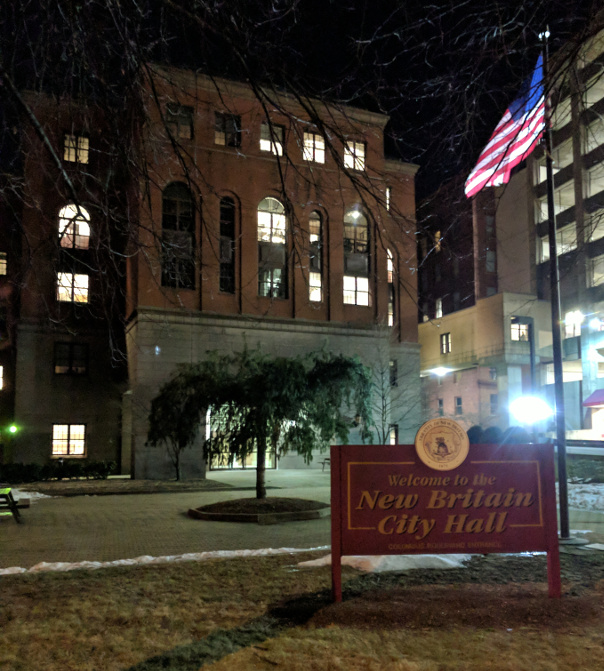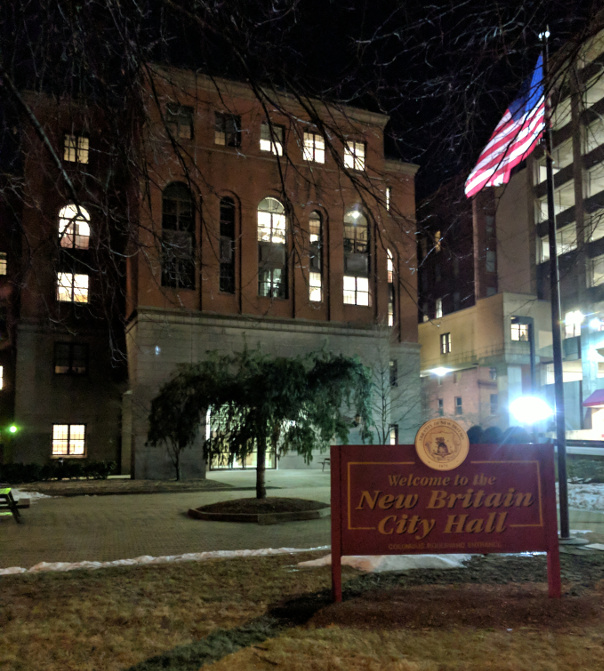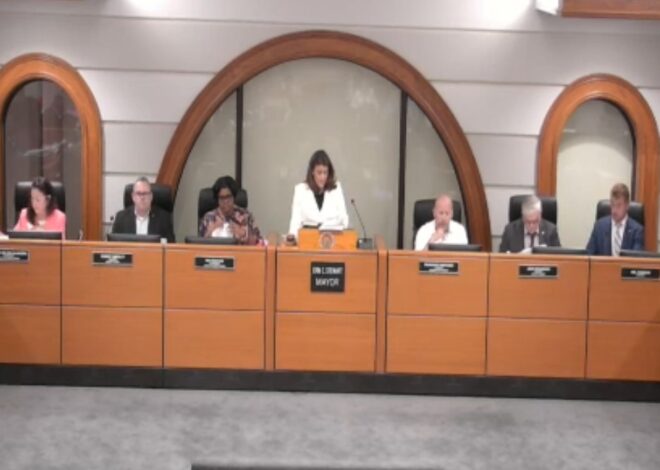All six of the Republican City Council members voted to block approval a proposed ordinance that would have brought back the requirement that city department heads be residents of New Britain. The Republican Council members’ votes at the September 12, 2018 Council meeting assured that Republican Mayor Erin Stewart’s veto of the proposed ordinance will remain in place.

The proposal would have reinstated the requirement that city department heads be or become residents of New Britain within one year after the conclusion of their hiring probationary period. For all but the fire and police chiefs, the restored residency requirement in the proposal would have applied only to future department heads.
Ordinances generally only become local law if they they are approved by both the Council and the mayor. If the Mayor disapproves of a proposal approved by the Council, she “vetoes” it.
The Council can approve an ordinance into law, over the mayor’s objection, if it “overrides” the mayor’s veto. However, a veto override requires “yes” votes from ten of the fifteen members of the Council.
The Council approved the proposed ordinance (local law), that had been introduced by Council Majority Leader, Ald. Carlo Carlozzi, Jr. (D-5), and Ald. Aram Ayalon (D-3), at its meeting on August 8, 2018. Eight Council members voted in favor and four opposed. Stewart then vetoed the measure.
All of the Democratic Council members have voted to approve the proposal, either on August 8th or September 12th. But, since there are nine Democrats on the Council, at least one Republican would have had to vote with them for the override motion to be approved.
Complicating the override vote further, illness kept Ald. Emmanuel Sanchez (D-AL) from the meeting, making it so that approval of the veto override would have required two Republicans voting in favor.
But, with all six Republicans voting in opposition, Stewart’s veto was assured to remain in place, even with all nine Democrats voting in favor.
At the meeting, Carlozzi discussed a series of ordinance changes that, since 2016, have removed, overall, more of the city department head positions from the New Britain residency requirement.
“It almost seemed as it was done without any long range planning,” Carlozzi said, “but just sort of met our needs at the time. ‘Oh, well, this candidate that is applying, we really want to hire them, but they really don’t want to move to the city, so let’s just change the ordinance.'”
Ald. Jamie Giantonio (R-1), confirmed the piecemeal nature of the changes to the list of department head positions covered by the residency requirement, but defended those changes as needed to find qualified candidates for those positions. “By taking away this residency requirement, we go out and hire the best person.”
Giantonio said that, “There are many factors that keep people from moving and relocating.” But he said that, without the requirement to reside in the city, department heads, “might just surprise us and move here on their own.”
“I think it is high time that we go back to what we had,” Carlozzi said. Noting that, “these positions are anywhere from $100,000 to $140,000,” he said, “If they are going to take tax our tax dollars, and they’re a department head, they should live in the city.”
The restored ordinance would have applied the requirement to live in New Britain to the positions of, “fire chief, police chief, and any successor director of public works, director of support services, director of recreation and community services, finance director, director of economic development, director of health and building services, director of community development, director of human resources.”
The remaining city department head positions consist of elected officials and the city corporation counsel, who are already required to be New Britain residents.
The new ordinance would have reversed changes to the city ordinances made by the 2015-2017 City Council that removed requirements that the heads of city departments live in New Britain. The Council, in that term of office, had a twelve to three Republican majority.
The final vote on veto override motion was eight in favor and six opposed.




